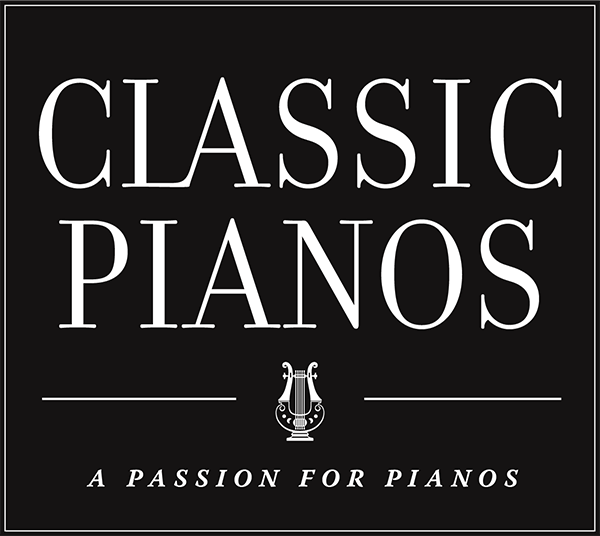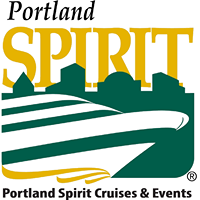
All Classical Radio’s Fall into the Arts returns for a fourth season in 2023! Join us on the radio Thursdays at 7:00 PM PT this autumn (October 5 – November 30, 2023) for our eight-part radio festival. This series features fantastic recent performances from our local musical community, curated by your favorite All Classical hosts.
Enjoy an encore broadcast of each episode on Sundays at 4:00 PM PT. Episodes will also be available in our Audio Archive for two weeks after their initial broadcast date.
Read on for more details about each episode. Then tune in at 89.9 FM in Portland or worldwide via the live player on our website.
Fall into the Arts 2023 is generously sponsored by Classic Pianos.
Fall into the Arts 2023
Episode 7 | November 16, 2023
Hosted by Leb Borgerson
Program details
Performances by
- Chamber Music Northwest
- Sunriver Music Festival
- Byrd Festival/Cantores in Ecclesia
- Willamette Valley Chamber Music Festival
- Ping & Woof Opera
Performed by Chamber Music Northwest:
Samuel Coleridge-Taylor (1875-1912): Clarinet Quintet in f-sharp minor – 2nd movement
Samuel Coleridge-Taylor wrote his Clarinet Quintet, Op. 10 while still a composition student at the Royal College of Music. Coleridge-Taylor was heavily influenced by Johannes Brahms as a student—whose final piece of chamber music was famously a clarinet quintet—and he likely grew interested in writing in this specific genre because of it. While the music of Antonín Dvořák undeniably also influenced the quintet, Coleridge-Taylor’s writing comes across as, above all, distinctive and well-balanced. In this early work, listeners hear Coleridge-Taylor as a compositional star on the rise.
Stewart Goodyear (b. 1978): Panorama
Perhaps best known for his reputation as one of his generation’s leading concert pianists, Stewart Goodyear has added another title to his already expansive career trajectory: composer. Written in 2019, Panorama is a fresh and thrilling piece for piano. Just as you settle into the rhythmic energy of the work, Goodyear shifts the mood, keeping the listener on their toes.
Performed by Sunriver Music Festival:
Alberto Ginastera (1916-1983): Variaciones concertantes
Many of Argentinian composer Alberto Ginastera’s compositions are rooted in the music and cultural history of his homeland. One exceptional example of this is his Variaciones concertantes, featuring an ever-changing palette of instrumental “colors.” While the piece is structured as a theme and variations, it could also function as a concerto for orchestra, where each movement features an instrument in the ensemble as a soloist.
*Adapted from notes by Jon Kochavi for Sunriver Music Festival
Performed by Byrd Festival/Cantores in Ecclesia
William Byrd (c. 1540-1623): Resurrexi & Ave Verum
Ave Verum is one of Byrd’s most treasured sacred motets, setting words from the Catholic liturgy and traditionally used for the feast of Corpus Christi. Interestingly, the work has only become popular in the modern era—it was composed following England’s conversion to Protestantism and was consequently shunned by English church musicians for centuries. Another sacred motet of Byrd’s published a couple of years later, Resurrexi, traditionally functions as the Introit of the Mass for Easter day.
Performed by Willamette Valley Chamber Music Festival:
Vasyl Barvinsky (1888-1963): Prayer
Ukrainian composer Vasyl Barvinsky’s life is shrouded in both tragedy and triumph. After spending decades building his career as a respected composer, pianist, and educator, Barvinsky was exiled to a labor camp, during which time his scores were burned. After being released 10 years later, Barvinsky spent his remaining years reconstructing his lost oeuvre and has since become one of the first Ukrainian composers to gain international recognition. Prayer is a poignant instrumental hymn offering a moment of meditative solace.
Performed by Ping & Woof Opera:
Scot Crandal: “Ständchen” (Serenade)
“Ständchen” (Serenade) is a poem by Ludwig Rellstab (1799-1860) famously set by Franz Schubert as part of his Swan Song collection composed at the end of his life. Scot Crandal’s setting of the German poem for voice and piano was inspired by the form Schubert used in his version and focuses on the drama inherent in the text. Read a translation of Rellstab’s German text here. The song was written for baritone Zachary Lenox and premiered at Ping & Woof Opera’s “Songs for My Valentine” concert in February 2023.
*Adapted from notes by the composer
Roger Quilter (1877-1953): “Weep Ye No More”
Using an anonymous English poem from the Elizabethan era, Roger Quilter’s setting of “Weep Ye No More” is one of several works rendering the historical soundscape of 16th-century England. Quilter’s ballad beautifully captures the flowing nature of the poetry as well as its sorrowful character. You can read the Elizabethan poem here.
Cécile Chaminade (1857-1944): “A travers bois” (Through the woods)
French composer and pianist Cécile Chaminade is a beloved figure of art song repertoire known for her prolific output of lyrical Romantic works. “A travers bois” (Through the woods) is a sparkling duet for soprano and tenor or baritone, setting evocative poetry by Edouard Guinand.
Episode 8 | November 30, 2023
Hosted by Warren Black
Program details
Performances by
- Big Horn Brass
- Pacific Youth Choir
- Britt Music Festival
- Mt. Angel Abbey Bach Fest
- Portland Symphonic Girlchoir
PAST EPISODES
Stream past episodes on demand in the All Classical Audio Archive for two weeks after broadcast.
Episode 1 | (Aired October 5, 2023)
Hosted by Brandi Parisi
Program details
Performances by
- Portland Baroque Orchestra
- Choral Arts Ensemble
- Portland Piano International
- Concerts at the Barn
- Resonance Ensemble
Performed by Portland Baroque Orchestra
Johann Sebastian Bach (1685-1750): Brandenburg Concerto No. 5 in D Major, BWV 1050
In 1721, J. S. Bach completed the fifth of his “Six Concertos for Several Instruments” for the Margrave of Brandenburg, now known as the Brandenburg Concertos. During the Baroque era, the harpsichord was generally relegated to a supporting role as part of the continuo rather than a soloist. This concerto not only features the harpsichord as a soloist but also a remarkable virtuosic harpsichord cadenza in the first movement. Some scholars see this work as a precursor for the piano concerto.
Performed by Choral Arts Ensemble
Sydney Guillaume (b. 1982): “This Too, Shall Pass” & “Nou Se Limyè”
The music of Haitian-American composer and Portland resident Sydney Guillaume is full of heart and passion, and performed all over the world. Using poetry written by Lloyd Reshard Jr., “This Too, Shall Pass” serves as a gentle reminder to make the most of the present moment. Written in Haitian Creole, “Nou Se Limyè” (We are the Light) inspires hope, love, compassion, and dignity. Gabriel T. Guillaume, the composer’s father, wrote texts for the latter two works.
Performed by Portland Piano International
Sergei Rachmaninoff (1873 –1943): Three Preludes
Prelude No. 2 in C-sharp Minor, Op. 3
Prelude No. 5 in G Minor, Op. 23
Prelude No. 12 in G-sharp Minor, Op. 32
Performed by Concerts at the Barn
Ludwig van Beethoven (1770-1827): “Eyeglass” Duet
When one thinks of Beethoven, playful isn’t usually one of the first qualities to come to mind. However, the German composer was known by his friends to have a strong sense of humor. Beethoven wrote his “Duet with Two Obligatory Eyeglasses” in 1796 for himself and his friend and amateur cellist, Baron Nikolaus Zmeskall, to play. The humorous title acknowledged the fact that both men needed to wear glasses in order to see the music.
Franz Doppler(1821 – 1883): Andante and Rondo, Op. 25
Performed by Resonance Ensemble
Paul Simon (b. 1941), arr. Kirby Shaw: “Bridge Over Troubled Water”
Written by American folk singer-songwriter Paul Simon in 1969, “Bridge Over Troubled Water” was inspired by gospel music and is considered by many to be Simon’s most memorable song, covered by countless singers over the past few decades. It’s no wonder, then, that Kirby Shaw, known for his copious output of choral arrangements, gravitated toward the ballad. Shaw took Simon’s song and lovingly crafted a version for mixed choir that leans even deeper into the work’s gospel inspiration.
Episode 2 | (Aired October 12, 2023)
Hosted by Lynnsay Maynard
Program details
Performances by
- Amadeus Chamber Orchestra
- In a Landscape (featuring Hunter Noack and James Edmund Greeley)
- Corvallis-OSU Symphony Orchestra
- In Mulieribus
- 45th Parallel
Performed by Amadeus Chamber Orchestra
Johann Heinrich Schmelzer (c. 1620-1680): Sonata Quarta in D Major
Austrian composer Johann Heinrich Schmelzer wrote the fourth of his six sonatas, titled “Sonatas for one violin” (or “one faith”), in 1664while serving at the Habsburg court in Vienna. The sonata comprises a series of variations on four descending notes, finishing with a thrilling show of virtuosity by the violin. Fun fact – Schmelzer was the first Austrian to be appointed Concert Master of the Habsburg court, and was so highly revered that he was entered into the noble class due to his professional achievements.
Performed by IN A LANDSCAPE
Prineville 1 & 2: Two Untitled Pieces featuring Hunter Noack and James Edmund Greeley
In April 2023, Hunter Noack of IN A LANDSCAPE invited James Edmund Greeley, member of the Confederated Tribes of Warm Springs and a long-time friend and collaborator, to the stage to improvise two pieces together under the night sky for 300 attendees bundled up on the shore of Prineville Reservoir State Park. The event, presented to 300 attendees bundled up on the shore of Prineville Reservoir State Park, marked a celebration of Oregon’s first state park to receive “Dark-Sky” status. DarkSky International restores the nighttime environment and protects communities from the harmful effects of light pollution through outreach, advocacy, and conservation.
*Notes adapted from text provided by IN A LANDSCAPE
Performed by Corvallis-OSU Symphony Orchestra
Pyotr Ilyich Tchaikovsky (1840-1893): Variations on a Rococo Theme, Op. 33
Inspired by the composer’s love of Mozart’s music, Tchaikovsky’s “Rococo Variations” is his first composition for cello and orchestra. Written in 1876 for his friend and professional cellist Wilhelm Fitzenhagen, the version of the work that became known to the public was considerably altered by Fitzenhagen. It wasn’t until the 1950s that Tchaikovsky’s original manuscript was pieced back together, which is the version played by the Corvallis-OSU Symphony Orchestra.
Performed by In Mulieribus
Kassiani (ca. 810 – ca. 895): Hymn of Kassiani
9th-century Byzantine abbess, poet, and composer Kassiani (also called Kassia[A1] [RR2] ) is the earliest known female composer whose music has survived to the present day. Once poised as a potential bride for the emperor Theophilos, Kassiani allegedly rebutted the prospects of such a union and founded a women’s monastery in Constantinople. Kassiani’s famous hymn is traditionally sung during Holy Week in the Greek Orthodox Church. It tells the biblical story of the woman who approached Jesus shortly before his death, washed his feet with her tears, and anointed them with oil. Read the English translation of the hymn text here.
You can learn more about Kassiani on All Classical’s Arts Blog.
Caterina Assandra (1590-1618): Duo seraphim
Caterina Assandra was an Italian organist, composer, and Benedictine nun. Duo seraphim represents one of Assandra’s sacred motets, written in 1609 for three voices and continuo. Assandra’s innovative musical choices in Duo seraphim anticipate Claudio Monteverdi’s setting of the same text the following year. An English translation of the Latin text can be found here.
Amy Beach (1867-1944): “Come unto These Yellow Sands” from Three Shakespeare Choruses, Op. 39
American composer Amy Beach wrote her Shakespearean songs for unaccompanied female chorus in 1897. The second of the three songs, “Come unto These Yellow Sands,” uses text from Act I, Scene 2 of The Tempest. Shakespeare must have been on the composer’s mind around this time as she also wrote Three Shakespeare Songs, Op. 37 for voice and piano that same year.
Anna Song: “Sister Among Sisters”
“Sister Among Sisters” is a new work written specifically for In Mulieribus by the ensemble’s co-founding artistic director and conductor, Anna Song. The choral piece features poetry by Ashland-based poet Tiziana DellaRovere. “Sister Among Sisters” received its world premiere with In Mulieribus on March 19, 2023.
Performed by 45th Parallel
Andrew Norman (b. 1979): Light Screens
Andrew Norman is an American composer and educator whose music draws on an eclectic mix of sounds and performance practices. Written in 2002, Light Screens was inspired by Frank Lloyd Wright’s stained glass window designs, which the architect termed “light screens.” The designs use simple shapes like squares and rhombuses in repetitive patterns, often featuring a lively dynamic of asymmetry between geometric activity and empty space.
*Adapted from notes by the composer
Episode 3 | (Aired October 19, 2023)
Hosted by John Pitman
Program details
Performances by
- Oregon Repertory Singers
- Newport Symphony
- Third Angle New Music
- Beaverton Symphony
- Bach Cantata Choir
Performed by Oregon Repertory Singers:
Jake Runestad (b. 1986): Come to the Woods
American composer and conductor Jake Runestad’s imaginative and uplifting works reflect the power of music to encourage positive change. Come to the Woods, written for choir and piano, explores writings by famed naturalist and conservationist John Muir inspired by the beauty of the wilderness. The work captures the self-discovery and sustenance one encounters while exploring the outdoors and its vital importance in our lives. You can read the full text for Come to the Woods here.
*Adapted from notes by the composer
Performed by Newport Symphony:
William Grant Still (1895-1978): Symphony No. 1 in A-flat Major, “Afro-American”
William Grant Still’s “Afro-American” Symphony is based on a blues-style theme, each movement offering a descriptive subtitle for the emotional journey: Longing, Sorrow, Humor, and Aspiration. Still also included epigraphs from African-American poet Paul Laurence Dunbar in the score to provide additional cultural understanding and influence. Still’s first symphony is among his most famous works, not to mention among the most popular American symphonies in existence, and represents the first symphony by a Black composer to be performed by a major American orchestra.
Performed by Third Angle New Music:
Adolphus Hailstork (b. 1941): Three Smiles for Tracey
Composer and educator Adolphus Hailstork is known for his pluralistic musical language, embracing a wide variety of contemporary techniques. While on faculty at Norfolk State University, Hailstork wrote Three Smiles for Tracey for Tracey Brown, a student at the institution known for her cheerfulness and warm smiles. The piece consists of three “smiles,” or solo preludes, for unaccompanied clarinet.
Jerod Impichchaachaaha’ Tate (b. 1968): Pisachi
Jerod Impichchaachaaha’ Tate is a Chickasaw composer and pianist whose native culture and heritage deeply inspire his works. Pisachi (the Chickasaw word for “reveal”) consists of six epitomes for string quartet drawing on Hopi and Pueblo music. The opening viola solo paraphrases a Pueblo Buffalo Dance and becomes thematic material throughout the work. Pisachi also refers to Hopi Buffalo Dance and Elk Dance music, honoring the composer’s Southwest cousins through classical music tradition. The piece was commissioned by ETHEL for their touring project, Documerica, and originally accompanied images of the American Indian Southwest.
*Adapted from notes by the composer
Performed by Beaverton Symphony:
Edward Elgar (1857-1934): “Nimrod” from Enigma Variations
English composer Edward Elgar’s Enigma Variations began as a set of piano improvisations on one theme, each improvisation inspired by a friend he had recently seen. The composer was notoriously vague about the meaning of “Enigma” for these variations, writing, “The Enigma I will not explain – its ‘dark saying’ must be left unguessed.” The ninth (and undeniably most famous) variation, “Nimrod,” is a tribute to Elgar’s friend and publisher, August Jaeger, who had played a significant role in lifting the composer out of a period of depression.
Camille Saint-Saëns (1835-1921): Violin Concerto No. 3 in b minor – 3rd movement
The popularity of Camille Saint-Saëns’s concerti has never faltered and demonstrates the French composer’s musical elegance and mastery of the genre. His third violin concerto, premiered by violinist Pablo de Sarasate, is the most frequently performed for the instrument and is a study of both songful lyricism and technical brilliance. Bringing the work to a close, the third movement starts with a recitative-like introduction by the soloist, after which they join the orchestra to dance the piece to a thrilling finish.
Performed by Bach Cantata Choir:
Johann Schelle (1648-1701): Cantata: Machet die Tore weit (“Lift Up Your Heads, O Gates”)
Johann Schelle was, in many ways, a predecessor of J. S. Bach. For instance, Schelle held the title of Thomaskantor in Leipzig from 1677 until his death, a post that Bach would later take up himself. While serving in Leipzig, Schelle fundamentally changed the system of composing by replacing Latin texts in sacred works with German language ones. Schelle’s cantata, Machet die Tore weit (“Life Up Your Heads, O Gates”), was written for the first Sunday of Advent and uses text from Psalm 24:7-10.
Episode 4 | (Aired October 26, 2023)
Hosted by Andrea Murray
Program details
Performances by
- Chamber Music Corvallis
- Vancouver Symphony
- Portland Opera
- Portland Columbia Symphony
- Big Mouth Society
Performed by Chamber Music Corvallis:
Leo Brouwer (b. 1939): Cuarteto No. 3
Cuban composer, conductor, and guitarist Leo Brouwer is especially beloved for his contribution to guitar repertoire. That being said, his work in other music genres is equally compelling. Brouwer’s Cuarteto (Quartet) No. 3 exemplifies the composer’s proclivity for melding Avant-Garde musical trends and Afro-Cuban patterns. Each of the string quartet’s four movements is given a descriptive title to guide the listener: “Ritual Voice for New Year’s Eve,” “Through the Body of the Wind,” “Impossible Dance,” and “The Rhythm of the Night Changed.”
Performed by Vancouver Symphony:
Pietro Mascagni (1863-1945): “Intermezzo” from Amica
When one reads “Mascagni” and “Intermezzo” together, chances are that the composer’s opera, Cavalleria rusticana, is the first piece to come to mind. However, despite much of his work being overshadowed by his Italian contemporaries, Mascagni was far from a one-hit wonder. Set in 19th-century Savoy, Amica is a classic verismo opera portraying a love triangle that ultimately ends in tragedy for the title heroine.
Performed by Portland Opera:
Kamala Sankaram (b. 1978): “The Chukar Song,” “The Mother’s Aria,” and “Mukhtar’s Decision” from Thumbprint
Thumbprint is a contemporary opera inspired by the true story of Mukhtar Mai—a trailblazing Pakistani activist whose fight for justice and safety reminds us that women’s rights are human rights. After surviving sexual violence perpetrated by a local tribal council in retribution for her brother’s alleged crimes, Mukhtar decides to live—and that decision changes the world. Mai became a voice for the women “buried in shame/without a stone to mark their graves” and an international advocate for human rights.
* Adapted from synopsis by Portland Opera
Performed by Portland Columbia Symphony:
Modest Mussorgsky (1839-1881): Pictures at an Exhibition – Movements 9 & 10
Pictures at an Exhibition by Russian composer Modest Mussorgsky began as a piano suite inspired by artwork by Victor Hartmann that the composer had recently seen exhibited. The exhibit included architectural drawings, paintings, and designs for dramatic productions. It was only after Mussorgsky’s death that the score was arranged by other composers for alternative instrumentation, including Ravel’s popular orchestrated version played by the Portland Columbia Symphony.
Performed by Big Mouth Society:
“Fa Shu Ha” (Under that Flower Tree), arr. by Yu-Shan Tsai
Taiwanese composer Tsai Yu-Shan has arranged many traditional works for choir. “Fa Shu Ha” (Under that Flower Tree) is a Hakka folksong (the native dialect of Taiwan) and the old name for a village in Meinong, home of the song’s lyricist, Siou-Ru Gu. In Siou-Ru Gu’s childhood memory, Fa Shu Ha symbolized prosperity. Today, however, neither flowers nor trees exist in the village.
*Adapted from notes by Big Mouth Society
Gerardo Guevara (b. 1930): “Apamuy Shungo”
Using text in Quichua, one of the indigenous languages spoken in Ecuador, “Apamuy Shungo” is a Yumbo, one of the fundamental rhythmic styles found in the Andean music of Ecuador. Yumbo is known for employing a characteristic driving rhythm.
*Adapted from notes by Big Mouth Society
“Hine Ma Tov” (How Good It Is), arr. Neil Ginsberg
Neil Ginsberg’s tender arrangement “Hine Ma Tov” (How Good It Is) for choir and instrumental accompaniment reimagines the traditional Hebrew hymn sung at Shabbat feasts without losing the substance of the meaningful text.
Jesse Ehrenberg: “A Bird Came Down the Walk”
“A Bird Came Down the Walk” by Portland-based composer Jesse Ehrenberg was commissioned and premiered by Big Mouth Society. The song for unaccompanied choir sets a poem of the same name by Emily Dickinson, which you can read here.
Episode 5 | (Aired November 2, 2023)
Hosted by Dylan Bodnarick
Program details
Performances by
- PSU Chamber Singers
- The Dali String Quartet presented by Friends of Chamber Music
- Portland Youth Philharmonic
- Orpheus PDX
- Makrokosmos Project
Performed by PSU Chamber Singers:
“Shenandoah,” arr. by James Erb
James Erb’s a cappella arrangement of the beloved American folksong “Shenandoah” is a favorite piece of programming for choirs all over the world, from amateur and collegiate ensembles to professional choirs. While the origins of the folksong are unknown, “Shenandoah” has been one of the most recognizable tunes in the U.S. since the end of the 19th century.
J. K. Alwood (1828-1909): “Unclouded Day” arr. by Shawn Kirchner
Composed by Rev. J. K. Alwood in the late 19th century, Shawn Kirchner’s contemporary arrangement of “Unclouded Day” has helped sustain the song’s enduring legacy. Kirchner’s version of the gospel piece is the first of three works titled Heavenly Home: Three American Songs.
Thomas A. Dorsey (1899-1993): “Precious Lord,” arr. by Arnold Sevier
In 1932, Thomas A. Dorsey wrote the lyrics for his heart-wrenching gospel song, “Precious Lord, Take My Hand,” adapting the tune from “Maitland” by George N. Allen. Dorsey wrote the song as an emotional release following the death of his wife and infant child. The piece has since become a source of solace for many and is often played at funerals and memorials.
“Way Over in Beulah Land,” arr. by Stacey V. Gibbs
“Way Over in Beulah Land” is a staple in traditional spiritual repertoire, and Stacey V. Gibbs’s arrangement infuses new energy into the familiar work while respecting the song’s origins. Over the course of the short piece, the music gradually builds momentum, culminating in a thrilling finish.
Performed by Friends of Chamber Music:
Javier Álvarez (1956-2023): Metro Chabacano
Mexican composer Javier Álvarez’s Metro Chabacano references a station on one of Mexico City’s subway system lines. The piece for string quartet has a continuous eighth-note pattern portraying imaginary cyclical journeys across fleeting urban landscapes. Metro Chabacano was commissioned for the Cuarteto Latinoamericano by visual artist Marcos Límenez.
*Adapted from notes by the composer
Astor Piazzolla (1921-1992): Tango Ballet
The music of Argentine composer Astor Piazzolla played a pivotal role in the Nuevo Tango movement of the 1950s, and Piazzolla is largely responsible for introducing the regional genre to music lovers around the world. Piazzolla’s Tango Ballet is a programmatic suite of six movements (or scenes): “I. Introduction,” “II. The Street,” “III. Encounter – Forgetfulness,” “IV. Cabaret,” “V. Solitude,” and “VI. Return to the street.” Initially written for Piazzolla’s Octeto, comprising two bandoneóns, two violins, cello, electric guitar, bass, and piano, this version performed by the Dalí Quartet is arranged for string quartet.
Performed by Portland Youth Philharmonic:
Jeff Scott: The Journey
The creation of The Journey between composer Jeff Scott and the 100 young musicians comprising the Portland Youth Philharmonic was collaborative, to say the least. PYP musicians were invited to submit melodies they liked, and ideas around what inspires them and makes them excited about performing. The resulting piece reflects the union of popular music and classical traditions, breaking down preconceived notions around genre crossover. The names of the work’s five movements include: “I. The Awakening,” “II. Fool’s March – Dance of the Jesters,” “III. Falling Serenade,” “IV. Depression,” and “V. Heroic Return.”
Performed by Orpheus PDX:
W. A. Mozart (1756-1791): Il Re Pastore (The Shepherd King) – Act II Finale
While Mozart wrote Il Re Pastore (The Shepard King) at just 19 years old, he was already a seasoned composer with several operas under his belt. This opera’s bucolic plot, written by Metastasio, involves the true heir of an ancient Mediterranean kingdom who has lived his life disguised as a shepherd. True to form for Mozart, the opera delves far beyond its characters’ archetypes and explores the temptations of power, the authentic self, and much more.
Performed by Makrokosmos Project:
Meredith Monk (b. 1942): Trekking
Composer, singer, director, choreographer, and creative powerhouse Meredith Monk has been recognized as one of the most unique and influential artists of our time. Trekking, her 2015 piece for two pianos, captures the repetitive endurance of the activity, taking each listener on an aural journey through their own imagined challenging expedition. Listen for the occasional little stumbles along the way.
Kirsten Volness (b. 1980): Ghosts of Cascadia
Composer and longtime Portland resident Kirsten Volness wrote Ghosts of Cascadia for concert pianists DUO Stephanie & Saar. The stunning work for two pianos captures the haunting beauty of the region: “[The piece] was inspired by the spiritual presence I feel of people I’ve recently lost—in the woods, in the wind, in the sound of waterfalls, as luscious plant life springs forth all around us in the Pacific Northwest.”
*Adapted from notes by Makrokosmos Project and notes by the composer
Episode 6 | (Aired November 9, 2023)
Hosted by Christa Wessel
Program details
Performances by
- Cappella Romana
- Portland Chamber Orchestra
- Fear No Music
- Metropolitan Youth Symphony
- Portland Revels
Performed by Cappella Romana:
Heaven and Earth: A Song of Creation
The massive work, Heaven and Earth: A Song of Creation, is a unique collaboration between six Orthodox composers—Tikey Zes (b. 1927), Richard Toensing (1940-2014), Kurt Sander (b. 1969), Alexander Khalil (b. 1969), John Michael Boyer (b. 1978), and Matthew Arndt (b. 1976). Each composer was tasked with setting a portion of Psalm 103, resulting in a stunning musical meditation sung in English. The psalm lent itself well to the idea of “unity in diversity,” with each composer’s musical voice finding its way into the cohesive overarching work.
*Adapted from notes by Richard Barrett, Artistic Director of The Saint John of Damascus Society
Performed by Portland Chamber Orchestra:
W. A. Mozart (1756-1791): Flute Concerto No. 2 in D Major
Never one to miss out on a two-for-one economic opportunity, Mozart’s second flute concerto was “recycled” from a concerto written for oboe the previous year. The infamous Austrian composer had received a commission to write several works for flute, including three concerti. However, as it turns out, Mozart wasn’t all that fond of writing for the flute and grew tired of the commission’s requirements. Instead, he chose to arrange his aforementioned oboe concerto for flute. Despite its seemingly unenthusiastic origins, Mozart’s Flute Concerto No. 2 is a delightful work of virtuosity, charm, and quintessential playfulness.
*Adapted from notes by Portland Chamber Orchestra
Performed by Fear No Music:
Chris Thomas: Echoes of Light
Best known today for his film scores and theme park music, composer Chris Thomas had his first professional compositional opportunities in Fear No Music’s Young Composer’s Project. The experience played a pivotal role in Thomas’s future writing music. In celebration of 25 years of the YCP, Thomas wrote Echoes of Light, a piece combining new and old musical conventions and borrowing creativity from the composer’s current and younger selves.
*Adapted from notes by the composer
Performed by Metropolitan Youth Symphony:
Margaret Bonds (1913-1972): Selections from Montgomery Variations
Written as a tribute to Martin Luther King, Jr., Margaret Bonds’ Montgomery Variations was inspired by a recent visit to Montgomery, Alabama, in 1963. The main thematic material is based on the spiritual “I Want Jesus to Walk with Me,” and the resulting orchestral work edifies Bonds’s experience of significant events in the Civil Rights Movement. The Montgomery Variations is one of only a few of the composer’s extant orchestral works and was published for the first time as recently as 2020!
Performed by Portland Revels:
“La Rosa enflorese” (The Rose Blooms), arr. Jeannette Sorrell
“La Rose enflorese” (The Rose Blooms) is a popular Sephardic love song from the 19th or early 20th century. This vibrant arrangement performed by Portland Revels is by GRAMMY® Award-winning conductor and renowned interpreter of early music Jeannette Sorrell.
ABOUT FALL INTO THE ARTS
A Radio Festival of Local Performances!
Fall into the Arts was conceived in 2020, as a way to support local arts organizations by sharing their best recordings to simulate the concert hall experience. Now, in its fourth year, Fall into the Arts continuing to celebrate what our partners and colleagues have planned for their new and exciting performance seasons.
Join us Thursdays at 7:00 PM PT (through November 30, 2023) at 89.9 FM in Portland or from anywhere in the world via the live player on our website.
Fall into the Arts will not air on Thanksgiving Day.
Fall into the Arts 2023 is generously sponsored by Classic Pianos.
Classic Pianos in Portland’s history traces all the way back to when the company’s founder, Maurice Unis, was a child. Maurice grew up around music and pianos. His grandfather, Maurice T. Schuster, owned the Acme Piano Company in Sellwood, OR, and even played with the Portland Symphony Society at President Roosevelt’s Dedication of Timberline Lodge in 1937. In 1976, Maurice founded Moe’s Pianos, which was then Portland’s most recognized name in piano sales and service. That business was sold to an outside firm, and Maurice became a sought-after consultant by other nationwide retailers. In 2001, Maurice and his son, Brian, opened a small piano retail operation under the name Classic Pianos.
That small business has grown to become one of the largest brick-and-mortar piano retail operations in the US. Today, the Unis family, including Maurice and his three sons, Brian, Aaron & Taylor, own eight piano stores in eight states, operating them all from the company’s 30,000 sq. ft. showroom and headquarters in Portland. Each store, no matter where it’s located, conducts business with the same integrity and passion that has made the flagship location so successful.
Classic Pianos Portland features over 300 new and used pianos in stock from Yamaha, Bösendorfer, Schimmel, and Estonia, plus premium pre-owned Steinways and more. Shop and learn more at classicportland.com.






